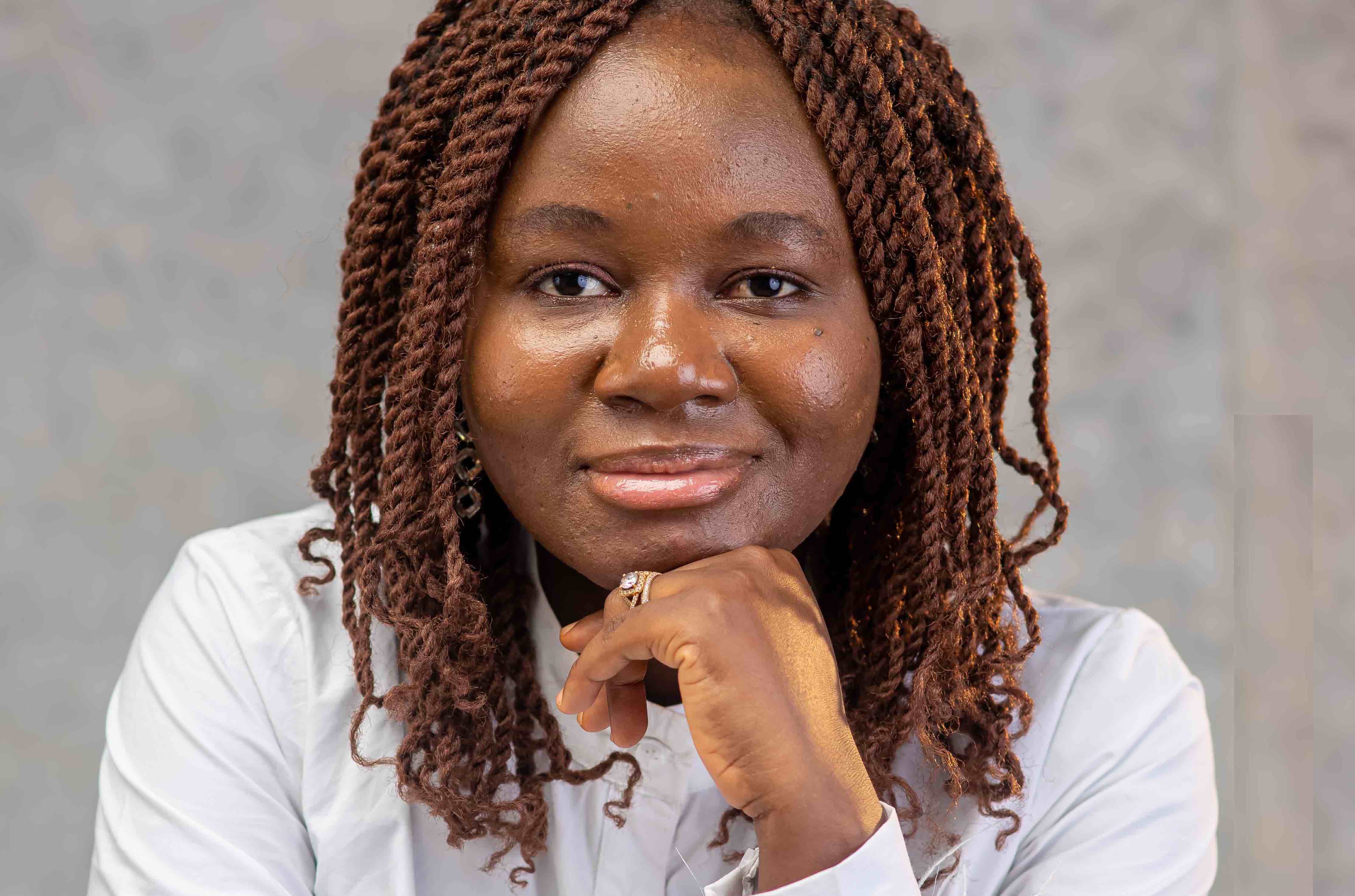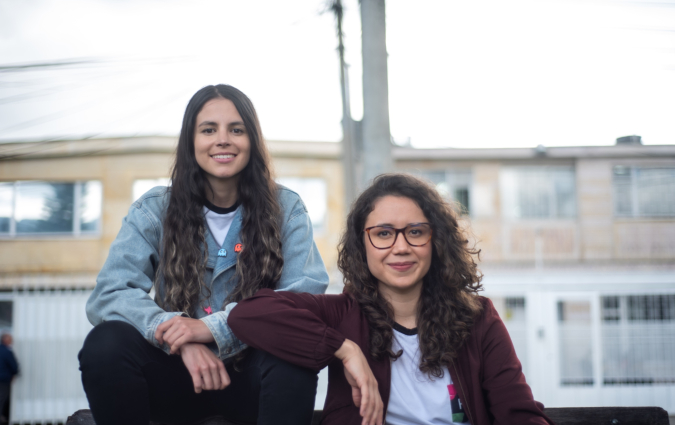“Politicians across Africa use social media to target their critics. Platforms are complicit”

Award-winning journalist Hannah Ajakaiye.
Award-winning Nigerian journalist Hannah Ajakaiye is on a mission to fight misinformation and its harmful impact across Africa. Ajakaiye is currently a Knight Fellow with the International Center for Journalists (ICFJ), where she leads fact-checking projects and initiatives, with a focus on combating misinformation in Nigeria. She also trains fact-checkers across newsrooms and works with social media influencers and local fact-checking organisations to debunk falsehoods.
Ajakaiye leads the Knight Fellowship programme in Nigeria and has been invited to moderate sessions on fact-checking by media organisations and international agencies. As a former ICFJ TruthBuzz Fellow in 2019, she worked with Africa Check, an independent fact-checking organisation, on projects around fake news. During that time, she collaborated with local reporters from Daily Trust, a national newspaper in Nigeria, and introduced pioneering ways of combating disinformation.
She’s worked with a team to produce social media-friendly videos in Pidgin English, a fusion of foreign and indigenous languages which has grown into one of Nigeria’s four widely spoken languages. The goal was to reach Nigerians across classes, education levels and varying degrees of digital media literacy.
In March Ajakaiye was announced as one of the winners of the John S. Knight Journalism Fellowships at Stanford University, where she will pursue a range of innovative ideas. In this interview, she shares her work on misinformation, her collaborations with different outlets and her plans going forward.
Q. How have you fought misinformation in Nigeria as an ICFJ Knight Fellow?
A. As a Knight fellow, I founded FactsMatterNG, a fact-checking initiative whose goal was to restore information integrity on digital platforms. Our work is geared towards combating mis- and disinformation on social media platforms by using digital strategies that resonate with our audiences. We have done this by building collaboration with news partners and fact-checking organisations including The Cable, Africa Check, FactCheckHub and Dubawa.
One of our core activities is building collaborations among journalists, fact-checkers and social media influencers. I also lead the team in facilitating and moderating conversations on trust and disinformation issues in partnership with civil society organisations and influencers. I have also facilitated training sessions on strategies to reach wider audiences and led the organisation’s effort in commissioning social media influencers and content creators to produce media literacy content teaching basic verification skills.
Q. How has misinformation affected the news media and the political landscape in Nigeria and in Africa as a whole?
A. Misinformation has eroded trust and increased polarisation, which is threatening civic participation. In some parts of Africa, people see sharing fake news as a form of social currency. This explains the rise of troll armies and targeted disinformation campaigns aimed at influencing public opinion.
What we are seeing is that politicians and bad actors are building an industry out of disinformation. This has far-reaching effects on democratic participation since it impedes on the ability of the public to make informed decisions.
Q. How big is the problem of disinformation in Nigeria? Do you think social media has exacerbated the problem?
A. Disinformation is a huge problem in Nigeria and this year’s election showed that. Social media is fueling disinformation in the country and mischief-makers appear to be making a business out of this.
As internet penetration continues to increase and many people access news on social media, we are seeing these platforms functioning as a public sphere where people not only share entertaining content but also news and opinions. Politicians across Africa are realising that social platforms can shape public opinion and they are investing in them by funding targeted misinformation campaigns. This explains why social media platforms like Twitter have become so toxic and why people with diverging opinions have become targeted.
We have also seen gendered disinformation campaigns against women and other critical voices who speak out against the government. Tech companies have been complicit in this. Their responses to disinformation in Africa appear to be an afterthought. They have limited presence on the continent and have not invested in content moderation in local languages.
Q. Did you work on misinformation during this year’s elections in Nigeria?
A. Our current project was supported by the National Endowment for Democracy (NED) and was geared towards combating dis- and misinformation about the elections. We collaborated with the Nigerian Fact-checkers Coalition (NFC) and offered support in our area of expertise, which is deploying digital strategies to make facts go viral.
We helped produce snackable social media videos, graphics and social media cards. We also produced humour-based media literacy videos in languages such as Hausa, Yoruba and Pidgin to inoculate members of the public against election disinformation.
Q. Misinformation was dominant at the peak of COVID-19 in Nigeria, especially around vaccines and deaths. How did this affect public perception of the pandemic?
A. We saw many posts validating fake cures and hoaxes and disregarding the science around the virus. We also saw a wide spread of conspiracy theories, some of them promoted by religious leaders and notable public figures. This in turn led to vaccine hesitancy and to people refusing to comply with safety measures such as wearing face masks and social distancing. The general perception is that COVID-19 is an ‘invention’ of China and the West. This resulted in people disregarding the practices that could have helped mitigate the spread of the virus.
Q. How would you assess fact-checking organisations in Nigeria? Do you think their work has been impactful?
A. Fact-checking organisations in Nigeria have made a tremendous effort in sanitising the information ecosystem in the country. Organisations like Africa Check and Dubawa have been committed to debunking false news on a large scale whilst also training journalists and driving media literacy amongst members of the public.
They are also doing a lot to advance the quality of the discussions in the public sphere. It was not surprising that during this year’s election many politicians would often make allusions to being fact-checked and would often task people to verify their claims. ‘Go and verify’ was a phrase which was common during the elections. This could not have been possible without the hard work of fact-checking organisations in the country.
Q. Have you organised any training for local journalists and newsrooms as a way of building their capacities to debunk fake news?
A. Yes. We have had a series of webinars with news partners. Some of these workshops have focused on digital strategies to reach wider audiences. We believe there is a need for newsrooms and fact.checking organisations to be deliberate about reach and engagement, especially on social media platforms where mis- and disinformation thrive on a large scale.
Q. How do you think the public can help in combating misinformation?
A. They can help support the effort of fact-checkers by sharing verified content amongst their network. They should also be responsible consumers of information and exercise restraint in sharing sensational news that can cause harm.
Q. Going forward, what kinds of work are you thinking about doing around misinformation?
A. We are focusing on combating disinformation on close messaging apps while also developing news judgement amongst underserved audiences. We’ll also keep exploring better ways to expand the audience for fact-checking content especially amongst younger people.
In every email we send you'll find original reporting, evidence-based insights, online seminars and readings curated from 100s of sources - all in 5 minutes.
- Twice a week
- More than 20,000 people receive it
- Unsubscribe any time







